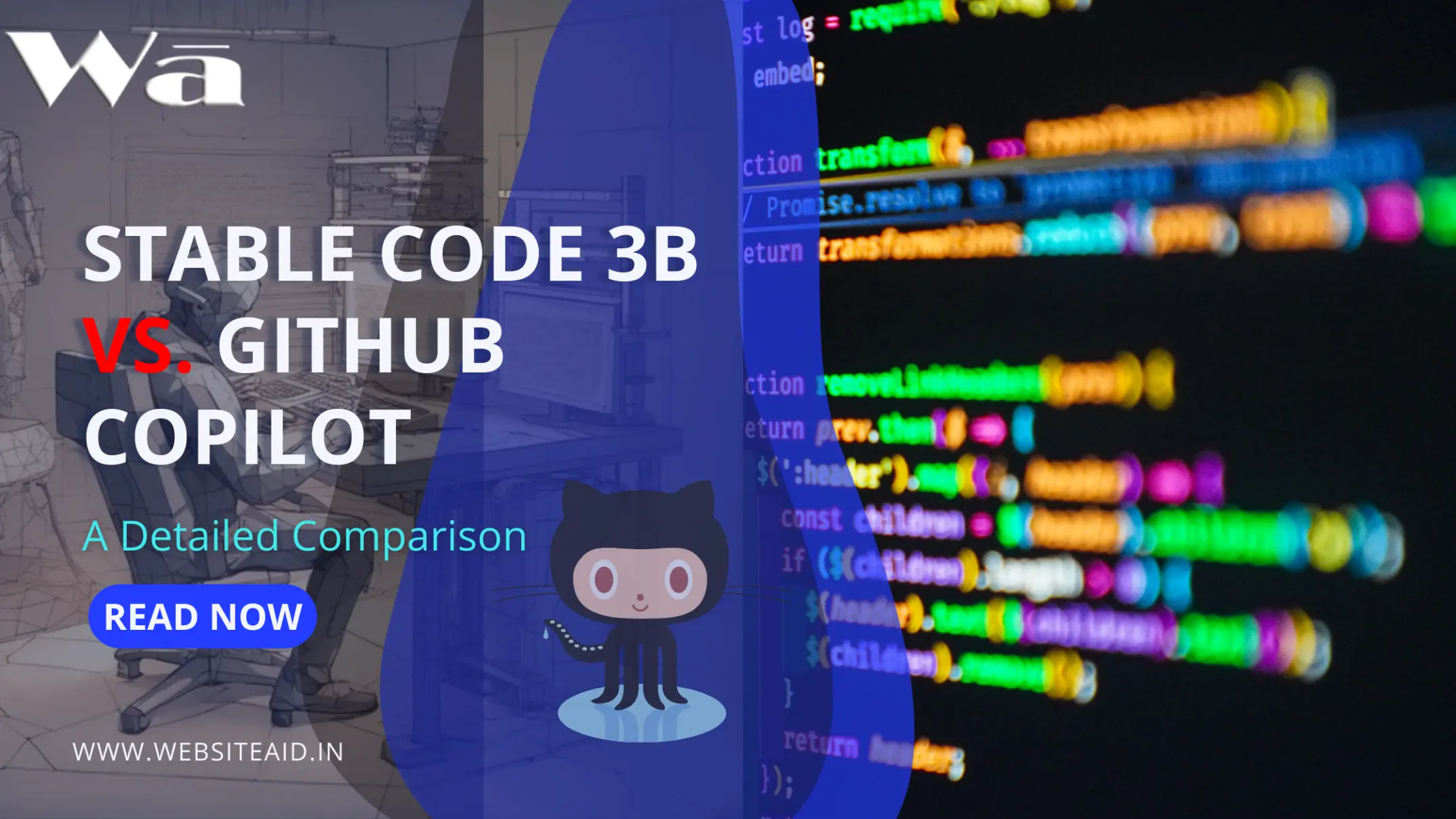Introduction
With the constantly changing field of coding support, developers may now choose from a wide range of AI-powered solutions. In this sector, GitHub Copilot and Stable Code 3B are two major contenders. Although their goals are similar, they each have unique features and functions that help to speed up the coding process. Let’s go into a thorough comparison Stable Code 3B vs. GitHub Copilot so you can make an informed decision.
Model Size and Performance:
Stable Code 3B:
With a modest 3 billion parameters, Stable Code 3B prides itself on being a lightweight model, ideal for on-device deployment. However, the smaller size might impact its performance on intricate tasks compared to larger models.
GitHub Copilot:
In contrast, GitHub Copilot boasts a robust 60 billion parameters, providing superior performance in code generation and a deeper understanding of complex contexts. Yet, this comes at the cost of requiring cloud access and higher hardware specifications.
Functionality and Features:
Stable Code 3B:
Stable Code 3B offers a triad of specialized models:
- A completion model for single/multiline suggestions.
- An instruction model for natural language prompts to perform coding tasks.
- A long context model tailored for handling large code blocks.
GitHub Copilot:
GitHub Copilot primarily focuses on code completion and suggestion based on existing code and comments, offering more limited natural language interaction.
Open Source vs. Proprietary:
Stable Code 3B:
As an open-source model, Stable Code 3B encourages developers to fine-tune it for specific needs and contribute to its enhancement.
GitHub Copilot:
GitHub Copilot operates under a proprietary model and commercial license, restricting customization and transparency.
Accuracy and Reliability:
Stable Code 3B:
The smaller size of Stable Code 3B may lead to lower accuracy on complex tasks. Additionally, the open-source nature raises concerns about potential biases or issues based on user contributions.
GitHub Copilot:
With a larger size and training on an extensive dataset of code, GitHub Copilot generally boasts higher accuracy and reliability. However, concerns exist regarding potential biases in its training data.
Cost and Accessibility:
Stable Code 3B:
Stable Code 3B is free to use and accessible to anyone with the technical skills to run it.
GitHub Copilot:
GitHub Copilot requires a paid subscription to GitHub Pro or the Copilot individual plan for access.
Overall Comparison:
Choosing between Stable Code 3B vs GitHub Copilot hinges on specific needs and priorities. Consider the following:
- Stable Code 3B: Ideal for developers seeking an open-source, lightweight tool for basic code completion and customization.
- GitHub Copilot: Suited for developers prioritizing accuracy, performance, and advanced features.
Factors like budget, hardware limitations, and desired open-source access level should also influence your decision.
Additional Notes:
- Both models are works in progress, constantly undergoing improvements.
- Proper usage and understanding are crucial to avoid errors and security vulnerabilities in generated code.
- Always review and test generated code before deploying it into production.
Conclusion
In the dynamic world of AI coding assistants, Stable Code 3B vs GitHub Copilot offer distinct advantages. The key lies in understanding your workflow and preferences. So, go ahead, explore both tools, and choose the one that seamlessly integrates with your coding journey.
FAQs
- Can I use Stable Code 3B without any cost?
- Absolutely! Stable Code 3B is freely accessible to users with the technical know-how.
- What sets GitHub Copilot apart in terms of functionality?
- GitHub Copilot focuses primarily on code completion based on existing code and comments, with more limited natural language interaction.
- Is GitHub Copilot suitable for on-device deployment?
- No, GitHub Copilot requires cloud access and higher hardware specifications.
- Can I contribute to the enhancement of Stable Code 3B?
- Certainly! Being an open-source model, Stable Code 3B welcomes contributions from developers.
- Are there any known biases in GitHub Copilot’s training data?
- Concerns have been raised about potential biases in GitHub Copilot’s training data, emphasizing the need for careful usage and evaluation.


1 thought on “Stable Code 3B vs. GitHub Copilot: A Detailed Comparison”
Pingback: Python function call completion stable code 3b, coding ai